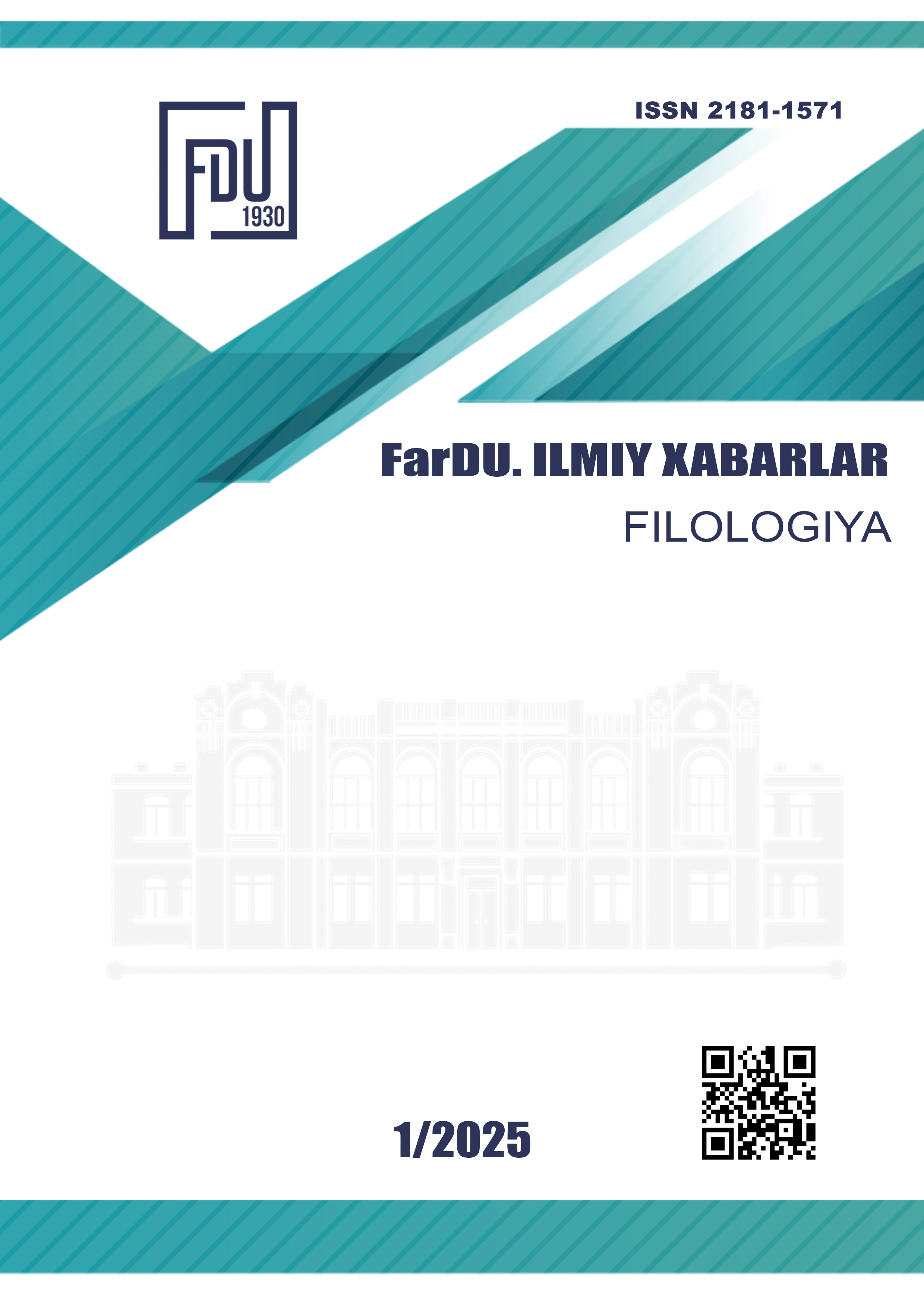A COMPARATIVE SEMANTIC STUDY OF THE MECHANISMS OF EXPRESSING "IRONY" IN ENGLISH AND UZBEK
Keywords:
Key words: Descriptive Analysis of irony, Comparative Analysis of irony, Corpus Analysis of irony, Grice, Gibbs, Qodirov’s view, Said Ahmad’s point, mechanisms of expressing irony, Sperber and Wilson’s Theory.Abstract
Annotation: Irony is a significant linguistic and cultural feature present in many languages, including English and Uzbek. It functions as a form of indirect communication, frequently expressing meanings contrary to their literal sense. While irony has been extensively examined within pragmatics, semantics, and discourse analysis, there is still a lack of comparative research on how it is conveyed in English and Uzbek. While both English and Uzbek utilize irony as a rhetorical and communicative device, the structural formation, perception, and interpretation of irony vary significantly due to linguistic and cultural distinctions. The scarcity of comparative studies in this area results in a knowledge gap regarding the mechanisms through which irony operates in these two languages. In this article, we will going to discuss semantic and pragmatic mechanisms of irony between English and Uzbek languages and also, identify similarities and differences in ironic expressions from English and Uzbek literatures. This article makes a valuable contribution to comparative linguistics by offering a deeper understanding of both the distinct and common aspects of irony in English and Uzbek. The results can be beneficial for linguists, translators, and language learners in grasping how irony functions in cross-cultural communication.
References
Oscar Wilde's “The Importance of Being Earnest” 1899, p6-10 and 50-60
Aitmatov “Jamila”,1861, p.1-150
Grice, H. P. (1975). Logic and Conversation. In P. Cole & J. L. Morgan (Eds.), Syntax and Semantics, Volume 3: Speech Acts (pp. 41–58). New York: Academic Press.
Sperber, D., & Wilson, D. (1981). Irony and the Use-Mention Distinction. In P. Cole (Ed.), Radical Pragmatics (pp. 295–318). New York: Academic Press.
Tursunov, M. (2004). Metaphorical Expressions in the Uzbek Language.
Abdulla Qodiriy “O’tgan kunlar”,1929, p100-150 and 250-300
Austen, J. (1813). Pride and Prejudice. London: T. Egerton.
Orwell, G. (1945). Animal Farm: A Fairy Story. London: Secker & Warburg.
Charles Dickens “Great Expectations”,1861, p.6-10
Said Ahmad “Jimjitlik”,1989, p.50-100 and 120-170
Downloads
Published
Issue
Section
License
Copyright (c) 2025 Scientific journal of the Fergana State University

This work is licensed under a Creative Commons Attribution-NonCommercial-NoDerivatives 4.0 International License.

